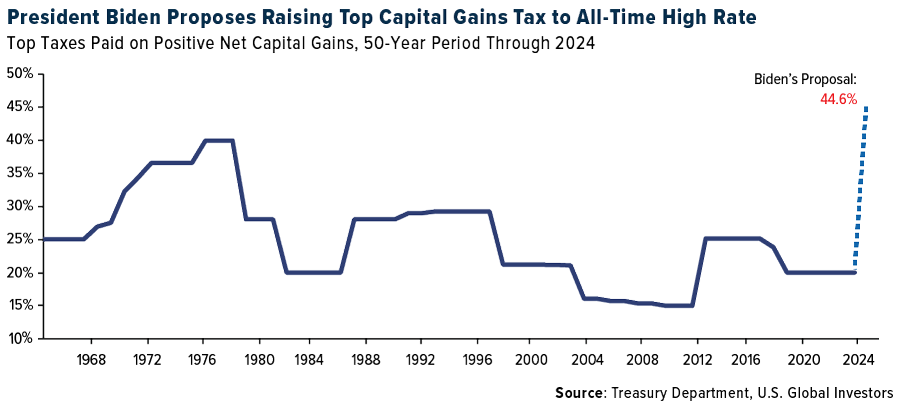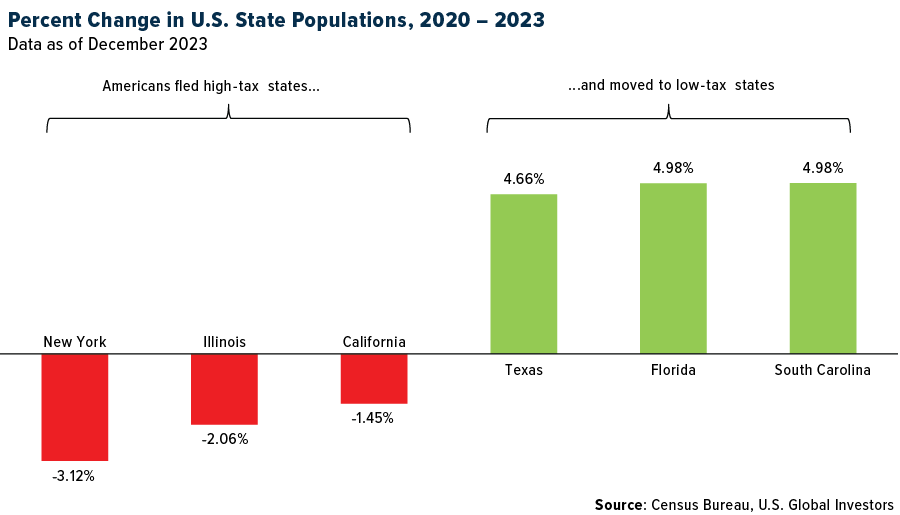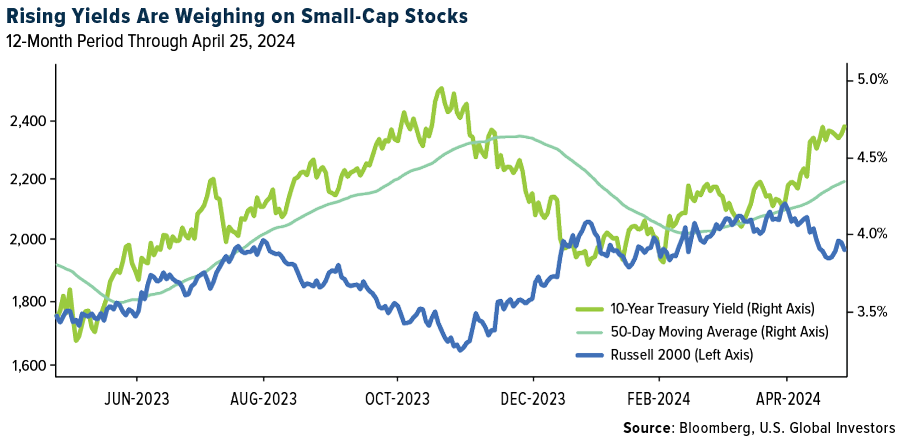In case you missed it, a $5 trillion tax hike looms over American households and businesses in President Joe Biden’s latest budget proposal, which would include a 25% annual minimum tax on unrealized capital gains for individuals with incomes and assets exceeding $100 million.
If signed into law, this would increase the top marginal rate on long-term gains and dividends to a jaw-dropping 44.6%, marking the highest such rate in U.S. history.

Biden’s plan proposes other changes to the tax code, but I want to focus on the part involving unrealized gains since it could have sweeping unintended consequences for the U.S. economy, personal liberty and the very fabric of American innovation.
To be clear, I don’t believe a deeply divided Congress would be able to find the votes necessary to approve this policy, but it’s crucial that people are at least aware of the potential ramifications.
When Gains Aren’t Gains
The idea of taxing unrealized capital gains—increases in the value of an asset like property or stocks that haven't been sold yet—is not only unprecedented but fundamentally flawed.
Imagine purchasing shares in a company for $1 million, and next year, those shares appreciate to $1.5 million. Under Biden’s plan, you would owe taxes on this $500,000 gain, despite not having sold the shares or realized any actual profit.
Now imagine that the stock's value drops back to $1 million the following year. You’ve already paid 25% on a gain that existed only on paper, and now you're also left shouldering a financial burden without any actual economic benefit.
You can see how this policy might not go over well with the investment community. As influential entrepreneur Anthony Pompliano tweeted last week, “If they want to collect unrealized gains, we’re going to need refunds on unrealized losses.”
If they want to collect unrealized gains, we’re going to need refunds on unrealized losses.
— Pomp
Scott Melker, host of the popular Wolf of All Streets podcast, commented that wealthy investors would simply employ a special strategy to minimize the impact of this additional tax burden. Rich people, he says, “will just take more loans against their portfolios,” knowing that the interest they pay on those loans can often be deducted.
If taxes go to 44% on cap gains, then rich people will just take more loans against their portfolios and never sell.
— The Wolf Of All Streets (@scottmelker) April 26, 2024
And the interest on those loans is… TAX DEDUCTIBLE!
Government will make less.
It’s all so tiresome.
Impact on Small Caps and Startups
This policy could dramatically distort investment behavior, especially when it comes to small caps, startups and early-stage companies. These businesses are often the engines of growth and innovation within the economy, but they rely on investments from those willing to take risks for the promise of future returns.
Knowing that their unrealized gains will be taxed, investors would be less inclined to invest in growth-oriented businesses, which tend to see greater swings in valuation year-over-year than larger, more established companies.
The consequence? A slower rate of innovation and a reduced growth in productivity.
Broad Opposition to New Tax Measures
You probably won’t be surprised to learn that Americans overwhelmingly oppose the taxation of unrealized gains. A 2021 study found that Americans reject this policy by a three-to-one margin, including a significant 76% of independent voters. This sentiment stems from a fundamental belief in economic liberty and the principle that a gain is not truly a gain until it is realized (sold).
The resistance to such tax policies is not merely financial but deeply psychological, rooted in the American ideals of fairness and the right to enjoy the fruits of one's labor without government interference.
How Tax Policies Drive Demographic Shifts
Higher taxes also influence shifts in demographics. As some of you may know from first-hand experience, high-tax environments drive individuals—and capital—to more hospitable fiscal climates.
Data from the Census Bureau vividly illustrates this, with significant net migration to states where tax burdens are below the national average. Take a look below. New York, Illinois and California, which impose heavy tax burdens on their residents, had the largest percentages of people leaving between 2020 and 2023, while Texas, Florida and South Carolina saw their populations grow the fastest.

I often say that money tends to flow where it’s respected the most, and this trend underscores that sentiment.
Small Caps Feeling the Pressure
This is all set against a backdrop of rising Treasury yields as inflation concerns persist and doubts grow that the Federal Reserve will be able to lower rates this year. High borrowing costs have impacted us all, but they’ve been especially challenging to small-cap stocks, which are generally more sensitive to economic shifts due to their higher debt loads and smaller financial cushions.
The chart below illustrates the inverse relationship between the 10-year yield and the Russell 2000. When the bond yield traded above its 50-day moving average, the selloff in small-cap stocks accelerated.

Small-cap stocks may continue to encounter significant obstacles, especially if rates remain inflated and Biden succeeds in taxing unrealized gains. Relative to the S&P 500, small caps are trading at their lowest levels since the dotcom bubble, making this a potentially interesting buying opportunity.
***
Past performance does not guarantee future results. All opinions expressed and data provided are subject to change without notice. Some of these opinions may not be appropriate to every investor. By clicking the link(s) above, you will be directed to a third-party website(s). U.S. Global Investors does not endorse all information supplied by this/these website(s) and is not responsible for its/their content.
The Russell 2000 Index is comprised of the smallest 2000 companies in the Russell 3000 Index, representing approximately 8% of the Russell 3000 total market capitalization.
